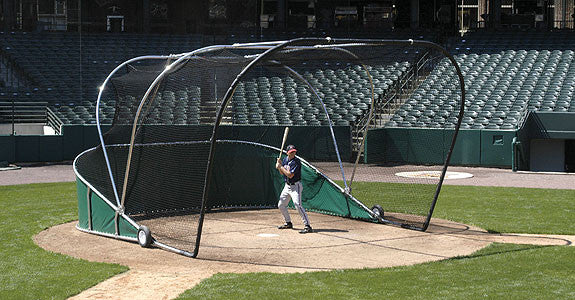I would like to add a little something to the question I had yesterday: do you think it's valuable to have outside instruction at facilities, personal instructors, coaching our individual level. The answer that question in my opinion and my opinion is is my opinion after were 50 years in the game. The answer is both yes and no. It's yes if the player really wants to go it's yes if the players really willing to listen it's yes only if the player is willing to do the work outside of instruction. There's no magic formula a player that can hit the ball cannot go to an instructor or to a camp or to the facility one or two times then all of a sudden get the ability to hit the ball. What all that instruction does is allow him to get the knowledge so that he can work on it correctly outside. There is a reason players are better when they get the time from their parents, brothers sisters, friends all those things that cause them to do the skill over and over.
Don't get me wrong if it's enjoyable and the kid wants to do it is an activity then perfect if work for you and the player then do it and enjoy it. But it won't make any difference if all you do is go once a week and never do anything outside of it. Nothing is accomplished one day a week has to be done consistently and often.
The saying is true we have to enjoy the journey because the destination is hard to get to and a long ways off.
Coach Arnald Swift

We have this come up on a regular basis especially the seasons quit and teams have players leave and need to add to players or trying to establish a new team regardless if it's for a local league or travel ball. There are huge areas and questions to be answered but I would like to address one from the standpoint that I am the assessor and trying to establish what players have the ability, understanding, knowledge and be a player that I want to have on my team.
First and foremost during tryouts we want everybody to do the same thing catch the same flyball of a machine preferably so it's always the same, throw the ball from the same spot, normally from shortstop on a easy rolled ball by the coach so there's no fielding really involved just getting it picked up so I can see his arm and his accuracy. Then again using the machine have the ball hit to the player again at shortstop is normal seeing how he fields the ball-- hit the ball off of tea and time in contact to touching first base with a stopwatch to assess speed- and finally using a machine so easy strikes so that you can see the bat swing, mechanics of the swing, and how hard he hits it.
Now I realize I've used the word machine a lot of times and the reason we do that is because everything will be consistent but if you don't have a machine make sure you use the same person trying to replicate the same throw, , by the way I always thought don't use the bat you can't be consistent there, so that every player has an equal opportunity.
Then hear something that I look at that normally people don't give enough credit for I want to see how the kid reacts when he fails when he succeeds I'd like to know his attitude and reactions when he throws one over the first baseman's head or drops the flyball. Does he pout kicked the ground and carry-on orders and get back and say let's do it again by his actions not his words by his actions not his words. Then if you have a chance make sure your recruiting parents as well as players. these two are very difficult because they're not quantifiable they just have to be how you feel about the situation and what your instincts tell you but there worthwhile making notes of as well as the mathematical/numerical values you have on a players skills-- running--hitting--Fielding-throwing- catching.
It will be worth your time to be able to have these numbers and facts when you tell a kid yes you're on the team or worse when you have to tell a kid/parents that no were going to pass and not use you this year.
Good luck and doing one of the toughest things around getting a team with players that you can coach and get good performance out of while making it a worthwhile experience for everybody.
Coach Arnald Swift BATCO
how do we get the boys ready to play or practice. Frame of mind, Before, drills, attitude, organization,
Baseball tip Some Coaches Notes On Baserunning
I wish I knew why so little time is spent on baserunning in practice.
Maybe there’s just so much to do coaches are less comfortable with their knowledge, and as I said, I don’t know.
But what if it were true that you could actually steal a few extra victories in a season? Would you feel it was important enough to rethink it? I hope, yes. But where would you start...and how would you implement it?
Some quick thoughts:
Decide how much time you would dedicate, then DO IT. Now they can get better, quicker and it becomes a habit for the entire team.,Explain to the team about a new weapon they will be using: baserunning! Let players know that all players can help, not just Johnny Fast-Guy. Be prepared for your 2nd practice drills to go 20-30% better than the 1st! Be prepared to get excited (as will your players) as this happens.
Make it a part of your practice routine. You’ll even come up with more ideas that I PROMISE you’ll “get” as your interest peaks!.
Thoughts on each base:
2nd Base
Second base is called scoring position for a reason.
It takes one hit to score most runners from here...and has the added bonus of eliminating the force or double play and pressures the defense and your opposing coaches further.
3rd Base
There are 9 different ways to score from 3rd base! Can you name them?
Wow! You just have to attack this base and get yourself there. It puts so much pressure on opposing coaches, pitchers, catchers and infielders that you could steal an extra game or three over the course of a season!
Hello Coach,
My question is what can we do about a hitter that is habitually late with her swing? It doesn"t seem to matter if the pitch is fast or slow!! Her mechanics and bat speed are great! She will be a sophomore at UW Whitewater this year. If she doesn't correct this problem soon, I don't think she will make the team this fall.
Thanks Tom
Tom
You're concerns are well-founded, because if the situation is as you describe no matter what pitch speed or type that she is always behind and misses the ball or hits it to the right side I will almost guarantee that
she's thinking too much.Here's a few things that you might try and ask her to do which by the way she has to do you can't do that for her.
1. While she is standing in the on deck circle she is to review several facts so she's not in her mind before she ever gets into the box-- what did this picture to me last time, what's the situation I'm going to be faced
with outs, runners, defensive position anything that could affect my time at bat she needs to have those answered within her mind before she ever gets into the box.
2. During practice she needs to be told to swing at and hit every pitch no matter what. What this is going to do is take away any thought process and you will be amazed many if not all the pages she puts the bat on.
I've even done this as a coach in a game but I'm going tell you right now her coach is not going to allow it during college game but she might pull it off in practice situations, scrimmages, doing our own.
3. Do this drill against the machine or against a real pitcher and that is what the bat down and watch the ball making a decision whether to swing or not mentally and never really doing anything if she could find the
time and the ability to look at 10 to 15 pitches with no bat it will make a big difference in how she's looking at pitches and in making the decision.
Because in a nutshell that's the problem she's thinking too much and therefore always late and always behind so we need to try to get as much of that out of the way before she gets into the box.
I hope some of this create some thought and even some help and best of luck let me know how it all works out.
Coach Arnald Swift
===========================================
Dear Coach
My son is 8 years old, he has been playing baseball since he was 4 and I've worked with him since he was 2. My question is he kills the baseball when I throw him BP and when I pitched to him last season in coach
pitch but now he has to hit off of player pitchers and he is pretty much not swinging the bat at all. He just stands there and when I ask him about it he says that the pitches were not strikes. How do I remedy this? He just made a 9 year old select team and I have to fix this before the season starts or he is either going to lead the league in walks or strike outs via looking.... What is frustrating for me is he has a ton of power, he is
4'9" 100lbs and hits lefty, I know how to fix mechanical issues but this one is mental.
Thanks!
Sam
Dear Sam
Let's make sure of one thing first off the bat does he have good mechanical skills and does he batting practice pitching, tee work, soft toss work well and consistently. My guess is you're going to answer yes then I have to agree 100% that it's all mental. What your boys doing is he thinking way too much and not just seeing the ball and hitting it. I don't know if you have control on are not but if I was his coach and I saw these things I would start to correct it by telling him that he has to hit the next pitch no matter what and if there are runners on base and we can collect hit-and-run, but in reality what were trying to do is take the decision-making out of his hands and make him swing at the next pitch the matter where it is. You will actually need to do this for an entire game and yes he may swing at some bad pitches anyway make an easy out or two but he will swing the bat he will make contact I promise you that. It's a very odd thing when you take away the decision-making, batter that actually is pretty decent they almost always get the ball the matter where it is in the strike zone out of the strike zone it doesn't make a difference they will make contact because their swing is good and they're not deciding if I should or shouldn't swing they know that already so they're just trying to get the ball and they will. Now if you can't do that a game because you don't have the control and what you need to do is go in the cage and tell him swing of this one no matter what don't swing at this one no matter what and start to take away the decision-making. You're just trying to get him comfortable with looking at the ball coming at him and swinging at it not whether it's a ball or strike not whether it's a curve or fastball just see the ball and hit. You will be amazed at how effective that is.
Please let me know how turns out.
Coach Arnald Swift
Dear Coach
My 10 year old grandson has been playing baseball since he was five, with one year off last year.
Since t-ball he has had a fear of the ball. He has stepped back from catching, stepped out of the batter's box because of his fear of being hit How do we coach him to help him get over this fear?
Thank you
Granddad
Below is a stock answer for concentration and pitch recognition along with being confident at the plate.
Try it and I believe that the boy will start to hit and catch better.
For catching take way his glove and play catch with a foam ball or plastic ball then get a baseball and do the drill I talk about below. We have to get over any fear and use to the ball. Believe it or not when they first
start the glove just gets in the way so eliminate it most of the time.
As simple as this sound get a piece of plywood, prop it up at and angle, have him or us throw the ball up the board and then field it as it rolls back down.
The for fly balls or high throws, throw the ball onto a roof and catch it as it comes off, it is fun and teaches throwing and eye hand coordination. Use a rubber ball or tennis ball gives a safer aspect to it if you so
desire.
Coach Arnald Swift











